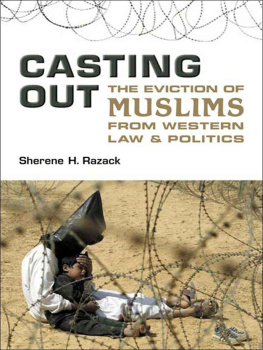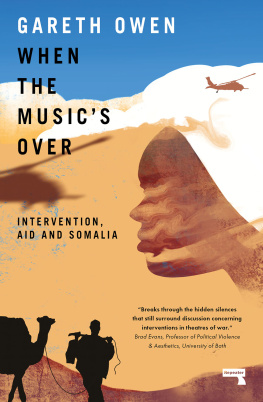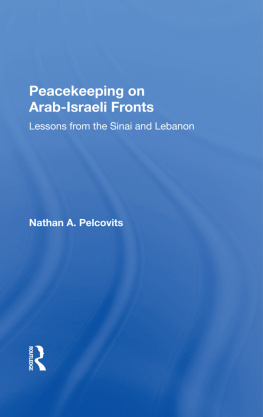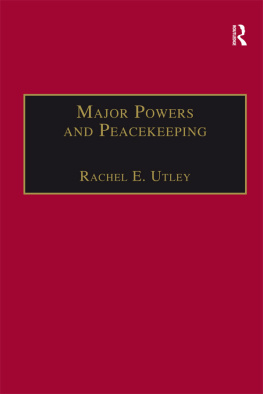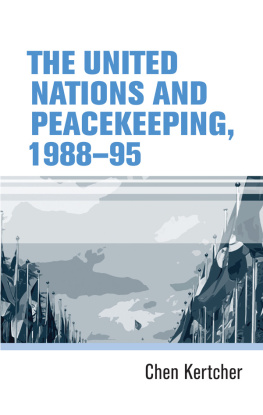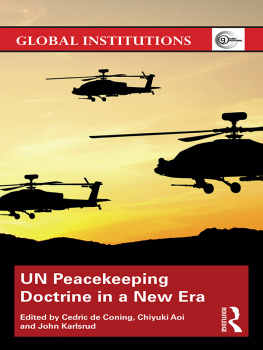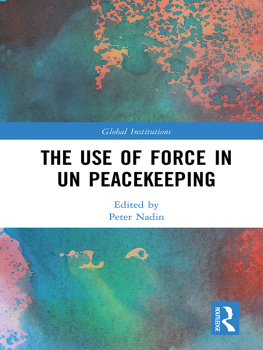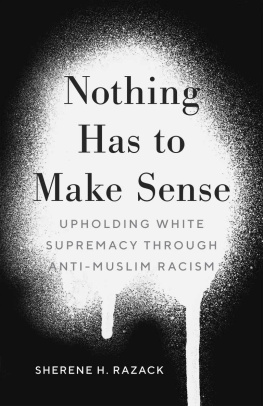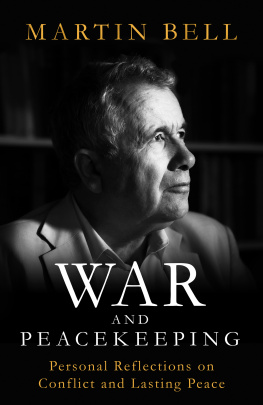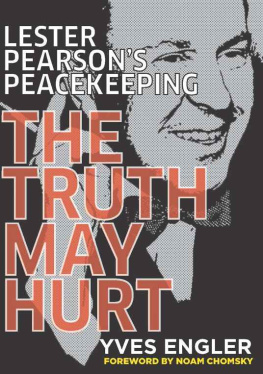DARK THREATS AND WHITE KNIGHTS
The Somalia Affair, Peacekeeping, and the New Imperialism
On 4 March 1993 two Somalis were shot in the back by Canadian peacekeepers, one fatally. Barely two weeks later, sixteen-year-old Shidane Abukar Arone was tortured to death. Dozens of Canadian soldiers looked on or knew of the torture.
The first reports of what became known in Canada as the Somalia Affair challenged national claims to a special expertise in peacekeeping and to a society free of racism. Today, however, despite a national inquiry into the deployment of troops to Somalia, most Canadians are proud of their nations role as peacekeeper to the world. Incidents of peacekeeping violence are attributed to a few bad apples, bad generals, and a rogue regiment.
In Dark Threats and White Knights, Sherene H. Razack explores the racism implicit in the Somalia Affair and what it has to do with modern peacekeeping. Drawing on the records of the military trials and public inquiry, Razack examines, first, the nature of the violence itself, and second, the ways in which peacekeeping violence is largely forgiven and ultimately forgotten. The matter of racism has all but disappeared from public memory and what remains is the myth of an innocent, morally superior middle-power nation obliged to discipline and sort out barbaric Third World nations. Modern peacekeeping, Razack concludes, maintains a colour line between a family of white nations constructed as civilized and a Third World constructed as a dark threat, a world in which violence is not only condoned but seen as necessary.
SHERENE H. RAZACK is a professor in the Department of Sociology and Equity Studies in Education at the Ontario Institute for Studies in Education, University of Toronto.
DARK THREATS AND WHITE KNIGHTS
The Somalia Affair, Peacekeeping, and the New Imperialism
Sherene H. Razack

University of Toronto Press 2004
Toronto Buffalo London
Printed in Canada
Reprinted 2007, 2010, 2011
ISBN 0-8020-8708-6 (cloth)
ISBN 0-8020-8663-2 (paper)

Printed on acid-free paper
National Library of Canada Cataloguing in Publication
Razack, Sherene
Dark threats and white knights : the Somalia Affair, peacekeeping and the
new imperialism / Sherene H. Razack.
Includes bibliographical references and index.
ISBN 0-8020-8708-6 (bound). ISBN 0-8020-8663-2 (pbk.)
1. Peacekeeping forces. 2. United Nations Peacekeeping forces.
3. Peacekeeping forces Canada. 4. Somalia Affair, 19921997. 5. Racism.
6. Imperialism. I. Title.
JZ6377.C3R39 2004 327.172 C2003-906789-0
The publisher gratefully acknowledges permission to reproduce in revised form articles
from the following: Hypatia 18, 1 (2003) (chapter 1); Cultural Anthropology 15, 1
(2000) (chapter 2); University of Missouri-Kansas Law Review 71, 2 (2002) (chapter 3).
This book has been published with the help of a grant from the Canadian Federation
for the Humanities and Social Sciences, through the Aid to Scholarly Publications
Program, using funds provided by the Social Sciences and Humanities Research
Council of Canada.
University of Toronto Press acknowledges the financial assistance to its publishing
program of the Canada Council for the Arts and the Ontario Arts Council.
University of Toronto Press acknowledges the financial support for its publishing
activities of the Government of Canada through the Canada Book Fund.
For my father
Ishmile
Contents
Acknowledgments
A friend once asked why I needed a research grant to write this book. A book of this nature requires countless hours spent over documents, many on a CD-ROM and others on-line or in libraries. I could not do this without research assistance and a generous grant for which I thank the Social Sciences and Humanities Research Council. The team of researchers, graduate students from the Department of Sociology and Equity Studies in Education of OISE/UT who worked on this project over the four years it took, provided much more than their stellar research skills. They gave generously of their insight and passion for social justice. For these gifts I thank Sheila Gill, Eve Haque, Gabrielle Hezekiah, Melanie Knight, Teresa Macias, Carmela Murdocca, Hijin Park, and Leslie Thielen Wilson. To Carmela and Leslie, who worked the longest on the project, I owe my heartfelt thanks for believing in this project even more than I did. Their consistent brilliance, competence, and caring highly motivated me to understand peacekeeping violence and to produce work that would matter. Leslie Thielen Wilson was the backbone of the project and I relied on her thoughtful and deeply ethical responses to violence as well as her amazing editing eye and research skills in ways that went well beyond research assistance. Even at the zero hour, Leslie continued to make suggestions that immeasurably improved the book. I am grateful to Godah Barre, Rohan Bansie, Ahmed Hashi, Karen Mock, Isaac Sechere, and Michelle Williams for interviews in which they shared their recollections and related documents of the Inquiry into the Deployment of Canadian Troops to Somalia.
Friends and family steadied me in ways too numerous to mention. My love and thanks go to my cottage writing buddies Honor Ford Smith and Narda Razack for listening to the arguments and providing critical feedback as well as fine meals and friendship. I am deeply grateful for the love and friendship of Ruth Roach Pierson, who shared her vast historical knowledge of Germany and many of her books on the Nazi years, inspiring me to reflect more deeply than I otherwise would on racism and the state. Over the years I presented parts of this work at annual Law and Society meetings and critical race conferences and benefited from friends who shared their own understanding of race. I thank them all. To my mother, my sister, my brothers, and my children, a big hug and thanks. Yes Ben and Ilya, your cheerful inquiries about the status of the book and even your interruptions sustained me more than you will ever know. To Larry Brookwell, whose love and support go well beyond considerable computer help and countless conversations, I can only repeat the standard line and mean it with all my heart: This book could not have been done without you. Finally, this book is dedicated to my father, with whom I shared its early conclusions but who died before it was completed. From the start, this book was a way to tell you that I absorbed all of those dinner-table political arguments you were known for. They shaped me in ways I have only now begun to understand. You taught me that history matters. I miss your keen sense of international justice and the passion of your convictions more than I thought possible.
THE WHITE MANS BURDEN
Rudyard Kipling
McClures Magazine (February 1899)
Take up the White Mans burden
Send forth the best ye breed
Go, bind your sons to exile
To serve your captives need;
To wait, in heavy harness,
On fluttered folk and wild
Your new-caught sullen peoples,
Half devil and half child.
Take up the White Mans burden
In patience to abide,
To veil the threat of terror
And check the show of pride;
By open speech and simple,
An hundred times made plain,
To seek anothers profit
And work anothers gain.
Take up the White Mans burden
The savage wars of peace
Fill full the mouth of Famine,
And bid the sickness cease;
Next page

